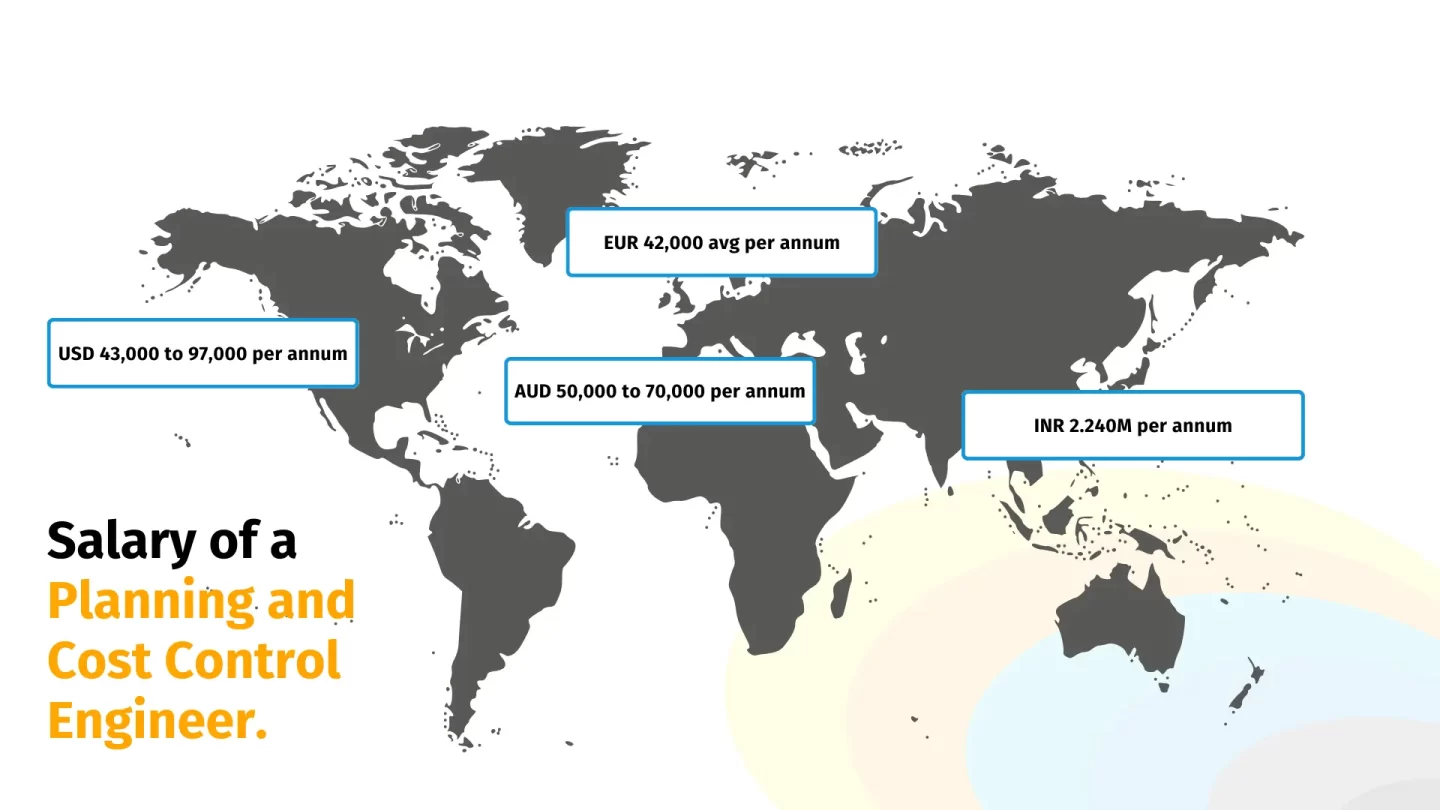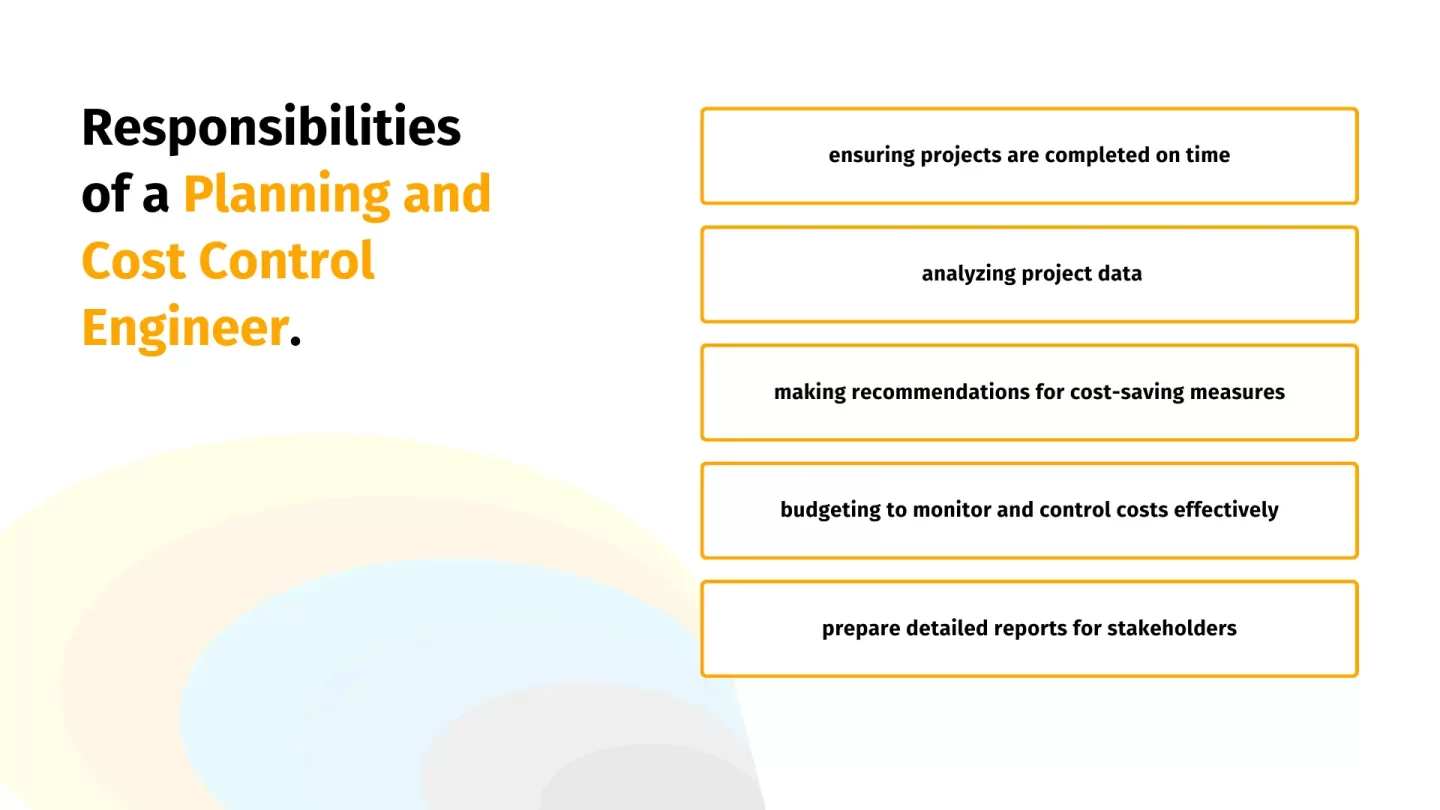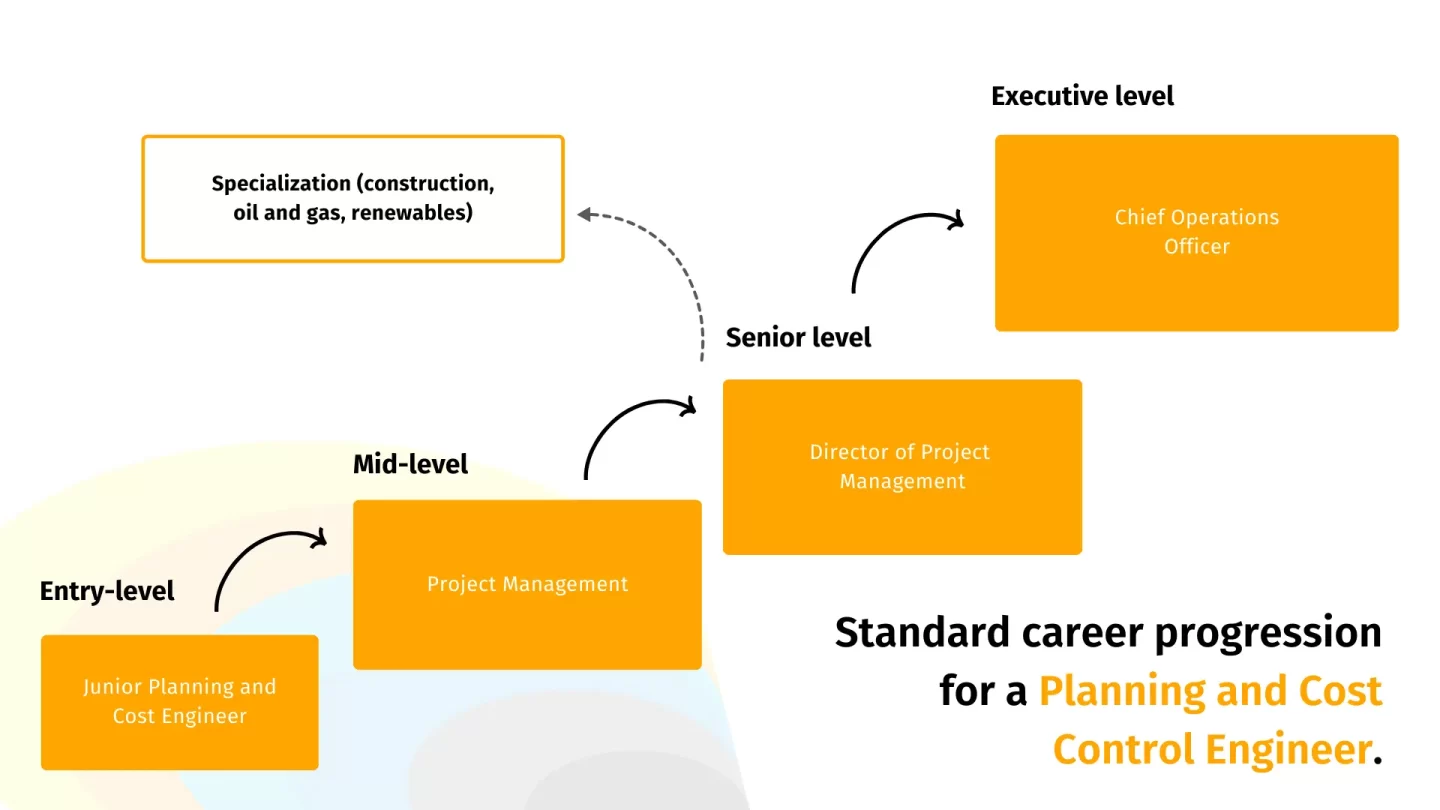Here’s a guide on becoming a Planning and Cost Control Engineer in the energy industry.
Why work as a planning and cost control engineer?
Working as a planning and cost control engineer means that you will be in charge of collecting the corporate expenses to create reports for management. It is important for companies in the energy industry to manage and estimate their production costs and track regular expenses. This is where you will be indispensable. The planning side of the job comes in handy for the development and maintenance of project schedules, monitoring KPI, informing about and acting when any delays or potential issues arise.
What does a planning and cost control engineer do?
A Planning and Cost Control Engineer plays a critical role in project management, particularly within the engineering and construction sectors. Their primary responsibilities revolve around ensuring projects are completed on time, within budget, and according to specified quality standards, analyzing project data, and making recommendations for cost-saving measures. You will work together with project managers and team members involved to ensure the project is progressing accordingly and within budget.
Planning and cost control engineer salary and benefits

Working as a Planning and cost engineer comes with differences in salary due to different factors, such as, the region you are working in, your previous experience and education, your skills. Here, we give an overview of the average salaries for this position in some regions around the world.
For those seeking work in the Netherlands, they can expect an average salary of EUR 42,000 annually. If you are instead, in the United States, your salary can range from USD 43,000 to 97,000 per year. When it comes to Sweden, a worker based in that country can bring home around SEK 40,000 every year. Finally, for those in India, their salary is an average of 2.240M Indian rupees.
Apart from the competitive salary which comes, there are benefits that come with working as a planning and cost control engineer. First is the opportunity for professional development and career growth as this role allows you to apply diverse skills within project management. These skills are highly transferable and can get you ready for higher senior positions. These skills are also interdisciplinary and can make it easier to transfer horizontally too.
Because of the versatility and variety of your work, there is a high demand across industries for planning and cost control engineers. These sectors include construction, manufacturing, oil and gas and technology. A good result of this is job security and high flexibility.
Your responsibilities include reducing costs and making operations efficient. With these is a lot of room for innovation to occur. This job allows you to stay at the forefront of the industry. If this rewards you, then this is a great benefit coming with the job.
Planning and cost control engineer skills and requirements
Cost control engineers are responsible for estimating expenses, comparing budgets with actual spending, and overseeing cost management during major changes in products or processes. They generate reports that influence managerial decisions and should have expertise in data and financial analysis. Their role involves setting standard costs, examining discrepancies in expenditures, and producing detailed reports both regularly and as needed. Additionally, they design and oversee budgets, track expenditures, and perform financial process audits and transaction evaluations. A degree in finance, accounting, or a similar area is required for this position, and a certified public accountant (CPA) credential is commonly preferred. Skills like problem-solving, team-working, project management and being detail-oriented are highly desirable
Responsibilities of a planning and cost control engineer

A Planning and Cost Control Engineer plays a crucial role in project management by ensuring projects are completed on time and within budget. Their primary responsibilities include developing project plans, scheduling, and budgeting to monitor and control costs effectively. They work closely with project managers and other engineering teams. With them, they forecast project expenses, assess financial risks, and implement cost-saving measures. Additionally, they analyze project performance against budgeted figures, identifying variances, and recommending solutions to mitigate financial discrepancies. Planning and Cost Control Engineers also prepare detailed reports for stakeholders, providing insights into the project’s financial health and progress. Their expertise is crucial in decision-making processes, ensuring resources are allocated efficiently and projects are aligned with strategic objectives. By optimizing project execution through meticulous planning and cost management, they contribute significantly to the success and profitability of engineering projects.
Locations of planning and cost control engineer jobs
Planning and cost control engineers are in high demand. They are needed in a variety of companies located all over the world. Most people in this position can expect to work in an office environment, or remotely too. Cities with a high concentration of construction and infrastructure projects, manufacturing plants, or energy companies often have a higher demand for these roles. Regions such as the Middle East, particularly the UAE and Saudi Arabia, Southeast Asia and parts of Africa are known for their large construction and infrastructure projects requiring skilled workers.
Challenges that planning and cost control engineers face
A big challenge, even for experienced planning and cost control engineers, is the frequent changes a project might go through. Changes can come due to outside factors that the company can hardly foresee or manipulate. Additionally, accurate cost estimates are hard to get. According to Marketwatch, 88% of spreadsheets have errors and most companies are still using spreadsheets to record costs.
If you are not the best at communicating, then this might be a hard aspect of your job as you will need to talk to different departments and stakeholders. You have to be knowledgeable and manage their expectations, as well as communicating incidents and processes. Additionally, working in a highly regulated industry such as that of oil and gas can represent a challenge as it is a must to ensure compliance of processes and projects through constant vigilance, which can add another layer of complexity to project planning and cost control.
Career progression and growth opportunities

As a planning and cost engineer, you will start in an entry-level position. As you gain experience, you may move into project management, where you will oversee entire projects, ensuring to meet deadlines, budgets, and quality standards. Opportunities for growth include specializing in high-demand industries such as construction, oil and gas, or renewable energy, where their expertise in cost management and efficiency optimization is highly valued. Further advancement can lead to strategic roles such as Director of Project Management or Chief Operations Officer, where they influence broader organizational strategy and efficiency.
Work environment and culture
The work environment and culture for Planning and Cost Control Engineers can vary significantly based on the industry, company size, and specific project requirements. Typically, these professionals work in office settings within construction companies, engineering firms, manufacturing plants, or governmental organizations. However, their roles may also require site visits and hands-on project assessments, blending desk work with fieldwork. Many organizations also support a culture of continuous learning and professional development, encouraging. Regarding working hours, these can be standard but may extend during critical project phases or to meet deadlines, highlighting the need for flexibility and strong time management skills.
How to become a planning and cost control engineer in the energy industry
To become a Planning and Cost Control Engineer in the energy industry, start with a bachelor’s degree. This can be in engineering, focusing on relevant fields like mechanical, electrical, or chemical engineering. This role demands a strong analytical skill set, with proficiency in various project management and financial software tools. Earning professional certifications, such as the Project Management Professional (PMP) or Certified Cost Professional (CCP), can also enhance career prospects. Continuous learning, adaptability, and the ability to leverage technology for efficient project management are key to advancing in this field. This offers a rewarding career path with diverse opportunities for growth and development.
Drawbacks
High working loads before meeting a deadline can bring planning and cost control engineers high levels of stress. This is in addition to the possibility of long work hours. These two factors are drawbacks that can be foreseen with good time management skills.
This role also comes with big responsibilities for financial outcomes. It is important to correctly report and be up-to-date with the development of the project. This to avoid major implications in financial performance.
Despite these challenges, many find the role rewarding. This is due to the significant impact they can have on the success of projects, the opportunity to work on a variety of projects, and the potential for career advancement.
In summary, becoming a Planning and Cost Control Engineer in the energy industry requires education, experience, and a dedication to project management. With the right skills and qualifications, this career can be rewarding. It can also provide opportunities for growth and advancement within the energy industry.
Current planning and cost control engineer vacancies
At WTS Energy, we are looking for talent to work in the global energy and infrastructure industry. Are you a planning and cost control engineer ready to face your next challenge? Check out our vacancies and apply today!
